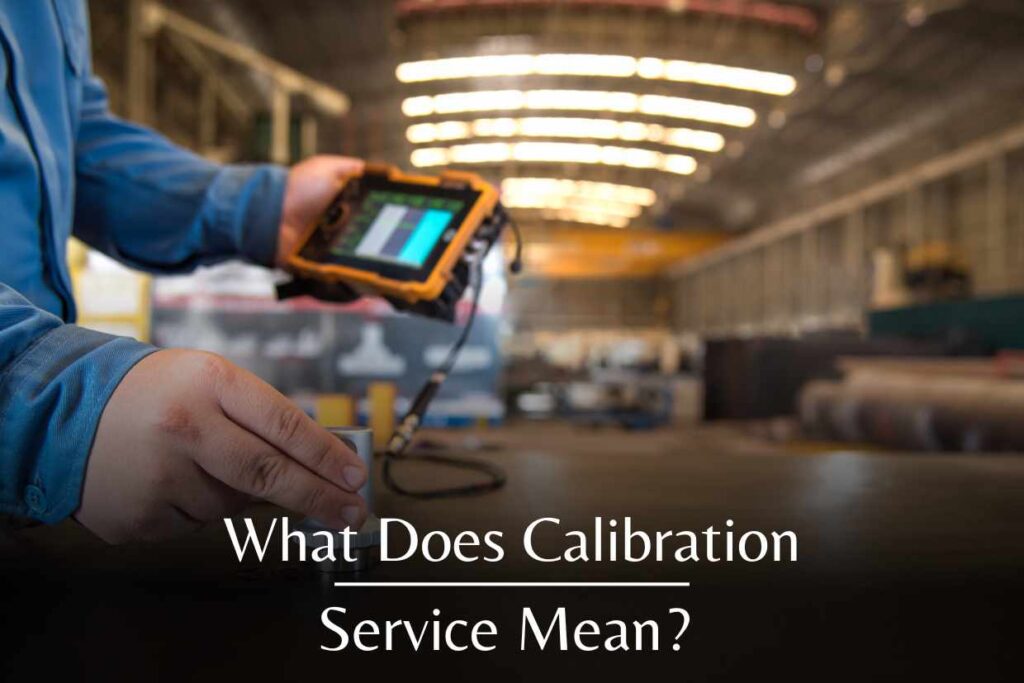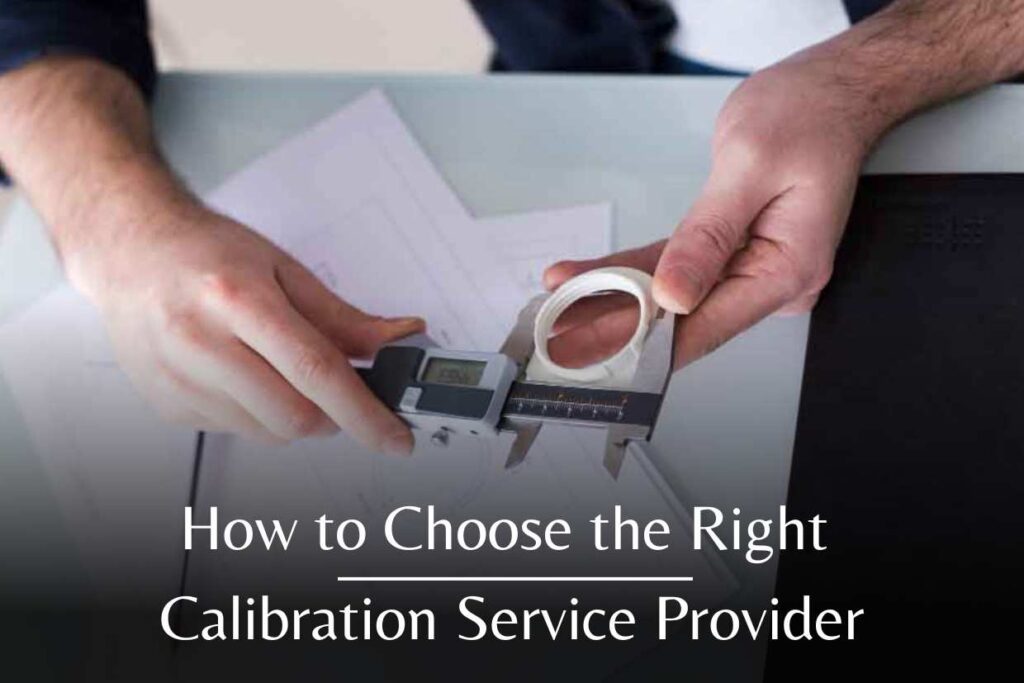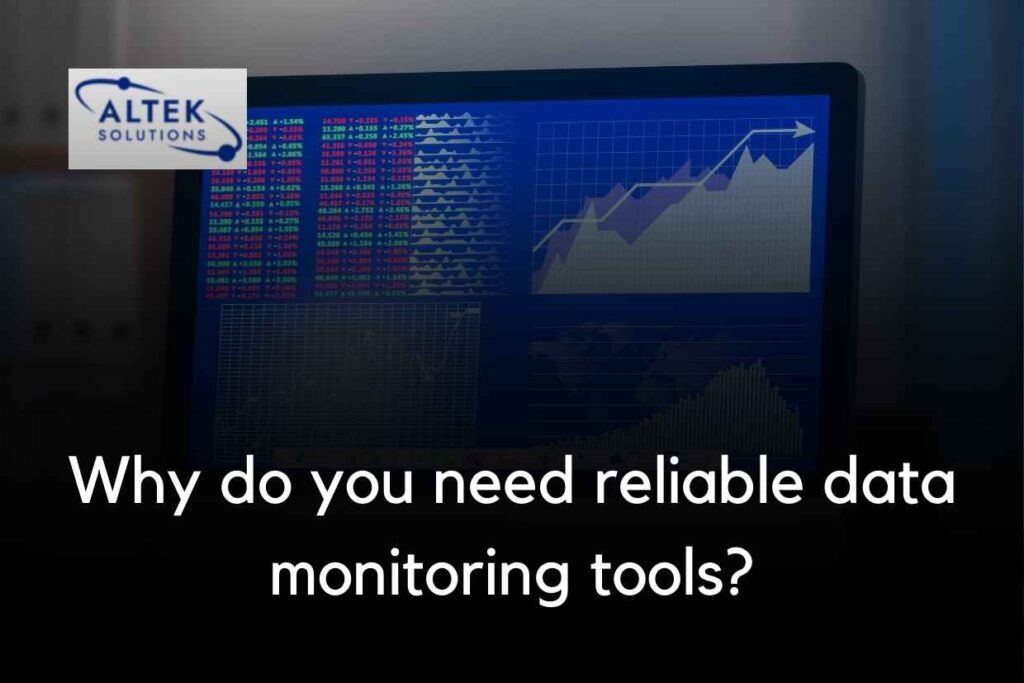Have you ever wondered what a “calibration service” is and why companies must calibrate their equipment? Well, you’ve come to the right place! We’ll unravel the mysteries of calibration services and explain why they matter more than that expired yoghurt in your fridge.
Buckle up, folks. This will be an epic journey into the intricate, high-stakes world of calibration services.
What is calibration?
First, let’s start with the basics – what is calibration? Calibration is the meticulous process of configuring, measuring, and adjusting equipment to meet specific standards and strict requirements. This involves comparing a device or tool against a known, trusted standard to verify that it’s performing accurately and precisely.
Think of calibration like tuning a guitar or piano – you have to carefully adjust the strings and keys so the instrument plays the proper notes flawlessly. Similarly, calibration ensures that measuring instruments like thermometers, scales, pressure gauges, or torque wrenches are correctly “tuned” to give correct, reliable measurements every single time.
Without proper calibration, you could end up with “out of tune” equipment that provides false or inconsistent data. The consequences could be disastrous. Imagine a miscalibrated medical device giving incorrect dosages, inaccurate manufacturing tools producing defective products, or a faulty altimeter on an aircraft showing the wrong altitude! Proper calibration helps avoid these nightmares.
Why does calibration matter so much?

But why does calibration matter so much? Numerous industries rely on sensitive, precisely calibrated measurement tools and equipment to manufacture products, conduct research, monitor processes, assure quality, and more.
Let’s look at some critical examples:
In healthcare, tools like MRI scanners, blood pressure cuffs, and lab equipment need meticulous calibration to provide accurate patient test results and measurements. No one wants an incorrect diagnosis or treatment due to a miscalibrated device!
In manufacturing, calibrated measurement tools help tightly control quality. A wrong dimension due to an uncalibrated micrometre could lead to thousands of defective parts. Automakers calibrate torque wrenches on assembly lines to ensure proper tightness when bolting on critical components. Scientific researchers depend on adequately calibrated instruments to collect precise experimental data and get credible and reproducible results. Can you imagine if a chemist published an important discovery only to learn that their uncalibrated pH meter was spitting out wrong readings the whole time? Yikes!
Even NASA calibrates the ultra-sensitive equipment on spacecraft to ensure data integrity from distant planets and solar systems. Accuracy matters when exploring the unknown. In summary, proper calibration allows for exact measurements, rigorous quality control, safety of the workplace, reliable R&D, and overall operational efficiency. Without it, organizations are literally “flying blind” and making critical decisions based on faulty data. Yes, calibration is that big of a deal!
Calibration services.
But who performs these indispensable calibration services that companies rely on? Enter the calibration service providers!
These meticulous experts and specialized businesses employ teams of engineers, metrologists, and technicians who use traceable standards to calibrate all types of equipment and measurement tools for clients across virtually every industry.
For example, reputable calibration labs maintain a broad scope of measurement capabilities under controlled conditions. They may have significant, environmentally regulated labs to properly calibrate temperature-sensitive devices like thermocouples and cleanrooms calibrated to ISO standards for servicing medical equipment and pharmaceutical equipment. Primary standard mass comparators for exact scale calibration and torque calibration systems that meet automotive specifications and much more – the list goes on!
Many calibration firms also offer on-site services, bringing their expertise directly to companies to calibrate equipment in its actual working environment. For example, calibrating a drilling rig’s pressure gauges at an oil field instead of attempting to remove and transport the massive equipment.
To give you an inside look into the thrilling world of calibration services, I shadowed a day in the life of a virtual calibration technician named Sam at Altek Solutions Company.
- 6 AM: Sam gulps a large coffee before heading to the lab. It’s time to calibrate that caffeine delivery system!
- 8 AM – He meticulously calibrates sensitive pressure gauges that a pharmaceutical client will use to regulate manufacturing reactors. Proper calibration prevents costly explosions!
- 10 AM – A dairy farm manager drops off a milk tank scale truckload that needs calibration before the next FDA audit. It is not a problem with Sam’s expertise calibration!
- Noon – Lunch break! Sam grabs a tasty sandwich from the new deli down the street. He resists the urge to “borrow” their scale for stealthy calibration.
- 1 PM – Back in the lab, Sam calibrates thermal imaging cameras used by firefighters to locate people trapped in burning buildings. His work helps save lives!
- 3 PM – A hospital rushes a new batch of infant thermometers needing urgent calibration before flu season hits. Sam springs into action to ensure accurate readings.
- 5 PM – It’s time to calibrate his sanity levels after an intense day! Sam heads home, satisfied after another successful day of keeping critical instruments adequately tuned. It is just another day of preventing instrument chaos!
So, in a nutshell, that’s a sneak peek into the vital world of calibration services! While it may seem boring to some, it’s a crucial function that diverse industries depend on daily to keep equipment and processes performing optimally.
Without diligent calibration, operations could grind to a halt, products could fail, research could be compromised, and catastrophic risks could arise. Calibration service experts are the unsung heroes working diligently behind the scenes to ensure that companies have measurement data they can completely trust and equipment that performs flawlessly. They help prevent the chaos in instruments!
The next time you see a calibration sticker on a device, think of the dedicated Sams out there! While calibration work may not seem glamorous, it plays an indispensable role across virtually every industry, and that’s definitely something worth celebrating.
Key Aspects of Calibration Services.

Okay, before this riveting article concludes, let’s do a quick recap of some key aspects of calibration services:
- Measurement Accuracy – Ensuring instruments measure to required tolerances through calibration adjustments.
- Traceability – Using trusted, certified standard references traceable to NIST or other standards bodies.
- Adjustments – Measured corrections and tweaks are made during calibration to optimize accuracy.
- Documentation – Issuing calibration reports and certificates that document as-found and as-left conditions.
- Servicing – Cleaning, maintenance, and repair of equipment as needed, in addition to calibration.
- Scheduling – Establishing optimal calibration frequencies based on variables like usage and environment.
- Standards Handling – Proper care, maintenance and control of calibrated reference standards.
- Accreditation – To ensure technical competence, adhere to quality systems and requirements like ISO/IEC 17025.
Calibration services delivered by experts like the fearless Sam provide vital accuracy and performance assurance for critical measuring equipment across countless industries. They ensure users can trust that their data and instruments are continually operating reliably. Now, that’s worth celebrating. Hooray for calibration!
So, the next time someone asks you the eternally compelling question, “What does calibration service mean?” You can regale them with your expansive knowledge! Explain how calibration techs help tune equipment to optimal performance. Share some riveting examples that capture their importance. Note the critical role accurate, traceable standards play in ensuring quality and safety. Tell a humorous story about the quirky world of calibration.
In other words, you can geek out on calibration and be the most fascinating person at any party. Okay, maybe the most fascinating person at a gathering of engineers and metrologists. Either way, you’ll have calibration knowledge for days after reading this epic journey into the procedure of calibration services!
More Key Facts about Calibration Services.
Now, let’s dive even deeper into more key facts about calibration services.
- Calibration intervals depend on the equipment’s usage and environment. Tools in harsh conditions need more frequent calibration than tools in a stable lab setting.
- Calibration firms keep detailed records and documentation of every calibration following international standards to maintain traceability.
- Professionals need extensive training and certification to properly perform calibrations across industries such as aerospace, automotive, biomed, and more.
- Advanced calibration labs are temperature and humidity-controlled with HEPA air filtration to provide stable atmospheric conditions.
- Exceptional handling and transportation methods are required when sending delicate calibration tools to service providers.
- Calibration technicians use high-precision reference standards directly traceable to national metrology institutes like NIST.
- Proper calibration helps companies pass stringent quality audits and comply with regulations like ISO 9000, ISO 17025, AS9100, ANSI Z540, and more.
- Tools requiring the highest level of accuracy may need recalibration after any physical shock, such as drops or impacts, that could cause them to go out of tolerance.
- In-house metrology labs at larger companies often still use third-party calibration services to validate their standards and procedures.
- Accreditation through A2LA, ACLASS or other bodies helps ensure calibration firm competency.
- Participation in rigorous interlaboratory comparisons gives confidence in consistency across the calibration industry.
Phew, still with me? That was a boatload of in-depth calibration knowledge! As you can see, proper calibration involves countless technical details, specialized expertise, and meticulous work.
We covered a lot of ground together. The basics of calibration, diverging into moustache-twirling examples of why it matters so much, the critical work of dedicated calibration service providers, and key technical aspects. Though calibration services may seem dry at first glance, just remember they directly impact our everyday work.
My friend, you now have enough calibrating knowledge under your toolbelt to make even the most fanatical metrologists nod in approval. So go forth and spread your informative wisdom about calibration services far and wide! The world needs more appreciation for those unsung calibration heroes. Our safety and quality demands depend on it.





